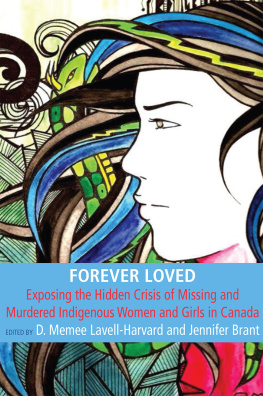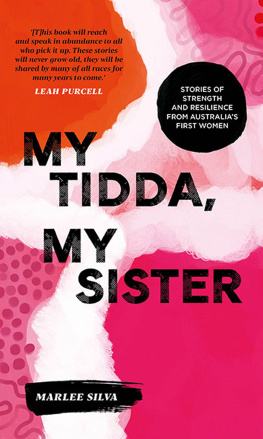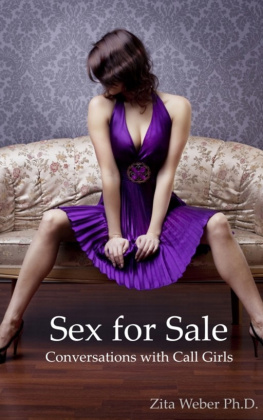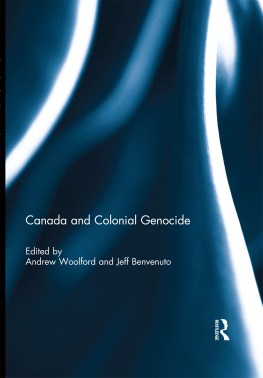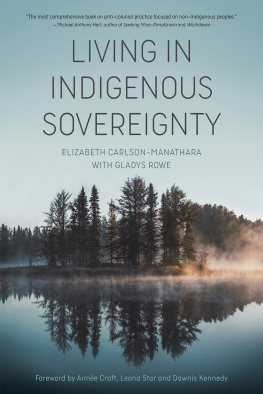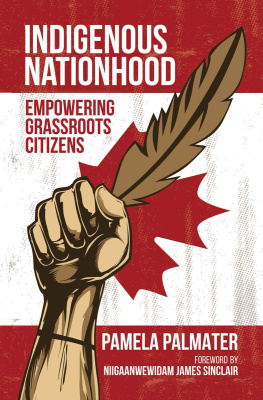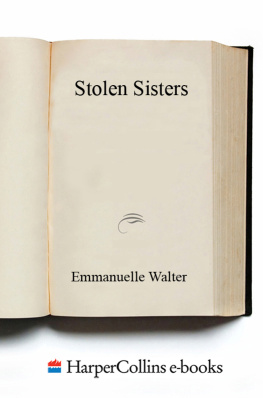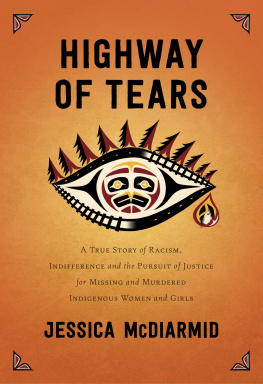FOREVER LOVED
Exposing the Hidden Crisis of
Missing and Murdered
Indigenous Women and Girls in Canada
Copyright 2016 Demeter Press
Individual copyright to their work is retained by the authors. All rights reserved. No part of this book may be reproduced or transmitted in any form by any means without permission in writing from the publisher.
Funded by the Government of Canada
Financ par la gouvernement du Canada

Demeter Press
140 Holland Street West
P. O. Box 13022
Bradford, ON L3Z 2Y5
Tel: (905) 775-9089
Email:
Website: www.demeterpress.org
Demeter Press logo based on the sculpture Demeter by Maria-Luise Bodirsky < www.keramik-atelier.bodirsky.de >
Printed and Bound in Canada
Front cover artwork: Alyssa M. General, Thunder Destroys the Horned Serpent, 2011, watercolour, gouache, ink, 8 x 10 feet.
eBook: tikaebooks.com
Library and Archives Canada Cataloguing in Publication
Forever loved : exposing the hidden crisis of missing and murdered indigenous women and girls in Canada / edited by Memee Lavell-Harvard and Jennifer Brant.
Includes bibliographical references.
ISBN 978-1-77258-020-4 (paperback)
1. Indigenous women--Violence against--Canada. 2. Women--Violence against--Canada. 3. Girls--Violence against--Canada. 4. Missing persons--Canada. 5. Murder victims--Canada. I. Lavell-Harvard, D. Memee (Dawn Memee), 1974- author, editor II. Brant, Jennifer, 1981-, author, editor
HV6250.4.W65F64 2016 362.880820971 C2016-902834-8II.
FOREVER LOVED
Exposing the Hidden Crisis of Missing and Murdered Indigenous Women and Girls in Canada
EDITED BY
D. Memee Lavell-Harvard and Jennifer Brant

DEMETER PRESS
This book is dedicated to all our stolen sisters
who have been taken from us far too soon without a trace.
We carry you in our hearts, and you will never be forgotten.
To the families and children who have lost a loved one and
struggle to carry on, we walk by your side and will continue
to do this work to bring awareness, action, and change.
With this work, we hold your hand to bring honour and respect
to the beautiful spirits of our women and girls
who will be forever loved.
Table of Contents
D. Memee Lavell-Harvard and Jennifer Brant
Wendee Kubik and Carrie Bourassa
Jessica Riel-Johns
and the Aftermath of Violence in Vancouver
Patricia OReilly and Thomas Fleming
Anita Olsen Harper
Caroline Fidan Tyler Doenmez
Josephine L. Savarese
Isela Prez-Torres
Rosemary Nagy
Brenda Anderson
Jennifer Brant and Nick Printup
Summer Rain Bentham, Hilla Kerner, and Lisa Steacy,
Vancouver Rape Relief and Womens Shelter
Vicki Chartrand, Myrna Abraham, Leah Maureen Gazan,
Cheryl James, Brenda Osborne, and Chickadee Richard
Maxine Matilpi
Tasha Spillet
Tasha Spillett
Gillian McKee
Sherry Emmerson
Skihitowin Awsis
Skihitowin Awsis
Alyssa M. General
D. Memee Lavell-Harvard, Gladys Radek,
and Bernice Williams
Acknowledgements
Saying thank you cannot convey the depth of gratitude to all those who made this collection possible. Many thanks go to Demeter Press and Andrea OReilly, for having the vision, faith, and the fortitude to see this project through to fruition.
Thank you to the mothers, grandmothers, aunties, sisters, and daughters who are leading the struggle, and the fathers and brothers who are on this journey with us keeping the memories alive. Whether you are leading the vigils, or walking the streets after dark searching for yet another missing sister, you are strength and optimism personified, and you are our inspiration.
Thank you to the authors who put into words a reality that cannot be imagined unless you have experienced it first hand, as this is the story of every mothers worst fear.
Thank you to the Elders, those grandmothers who guide us in our work, every day in every way, to make sure we are walking with good hearts and good minds. We thank you for your guidance, your prayers, and your wisdom. You have kept us on the right path and lifted us up when we thought we could go no further.
Thank you to our mothers, Jeannette Lavell and Cathy Winter, to Jameson Brant, and to our community Grandmothers and Aunties. You taught us what it meant to be Indigenous women; to be strong, resilient and proud of who we are, to never give up hope even when things seem truly hopeless. Most of all thank you to our children: Autumn, Eva, Brianna and Jayden and Quinten. On the days when this struggle gets too hard, when we feel like we cannot face another day with another story of loss and tragedy, on those days when the experts tell us we have to learn to distance ourselves, we carry on because we have you! Because we were given the gift of these precious lives, and we will continue to do everything in our power to keep you safe even if it means we must change the world.
Introduction
Forever Loved
D. MEMEE LAVELL-HARVARD AND JENNIFER BRANT
To be born poor, an Indian, and a female is to be a member of the most disadvantaged minority in Canada today, a citizen minus. It is to be victimized and utterly powerless, and to be, by government decree, without legal recourse of any kind. Kathleen Jamieson (92)
I N MOTHERS OF THE NATIONS: Indigenous Mothering as Global Resistance, Reclaiming and Recovery , Lavell-Harvard and Anderson declare that Indigenous women are entitled to claim a victory:
After centuries of persecution and oppression, the simple fact that we are still here, as proud Indigenous mothers, at the heart of our families, communities, and nations, signifies the strength of our resistance. Whether this resistance has been overt, as our sisters engage in constitutional challenges or human rights demonstrations, or covert, as we silently reconnect with the land and teach our children the ways of our ancestors, our efforts have ensured the continued survival of our people. (1)
This book may be positioned as an expression of both overt and covert resistance as we contribute to the continued survival of our people in all aspects of our work as Indigenous women, mothers, grandmothers, and community members. In a country where the tragedy of more than twelve hundred missing and murdered Indigenous women and girls has been denied, obscured, or simply ignored by those with the power and resources to prevent the appalling rates of violence (not to mention the fiduciary responsibility and legal obligation to do so), the personal is indeed political. Simply being born Aboriginal and female, in a nation built on the oppression of Indigenous peoples, and the subjugation of women, engenders the very real likelihood of being subjected to the most severe forms of violence and becoming yet another homicide statistic, even without engaging in so-called high-risk activities (Boyer).
In October 2004 Amnesty International released a report titled Stolen Sisters: A Human Rights Response to the Discrimination and Violence against Indigenous Women in Canada in response to the appalling number, over five hundred, of Indigenous women who are victims of racialized and sexualized violence. Tragically, since this initial report, the numbers have continued to rise. Noting that Indigenous women are eight times more likely to die as a result of violence, the most recent RCMP report documents 1,181 missing or murdered Aboriginal women and girls between 1980 and 2012. Another thirty-two were identified this year, 2016, with more distressing cases being reported every month. After conducting an extensive investigation here in Canada, the United Nations Committee on the Elimination of Discrimination against Women issued their report in March of 2015 condemning Canada, unequivocally declaring the ongoing failure to protect Indigenous women and girls to be grave human rights violation ( UNCEDAW ).

